At a recent dinner event organised by the PanAsia Surgery Group for some members of the media, the company’s group of surgeons introduced some of the the latest upcoming advances in the fields of surgery and health care for 2019.
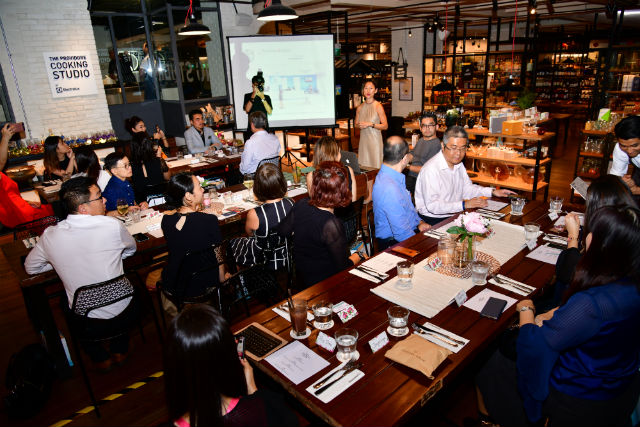 I was invited to attend the event, which turned out to be a four-course culinary showcase prepared by the inaugural MasterChef Singapore winner, Zander Ng.
I was invited to attend the event, which turned out to be a four-course culinary showcase prepared by the inaugural MasterChef Singapore winner, Zander Ng.
Progression Of Gall Bladder Surgery
The event had kicked off with the progression of Gall Bladder Surgery from the 1960s to the present day, bringing us through how surgical methods had progressed from leaving large scars, to keyhole and pinhole surgery which are minimally invasive, and then eventually to No-Scar Surgery today.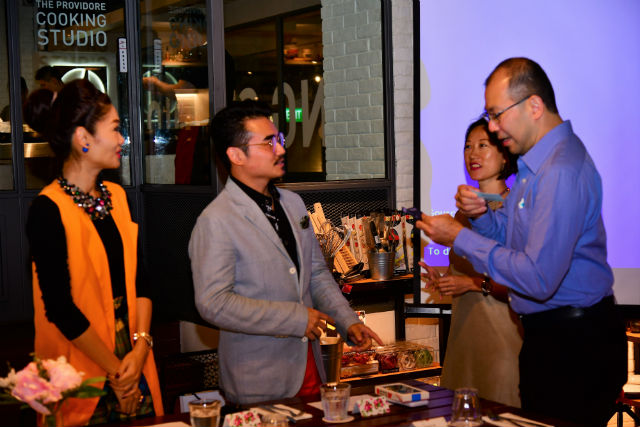
No-Scar Surgery goes beyond minimally invasive surgery, and as the name suggests, it is a surgical procedure that does not leave any scars on the body.
So this means that ladies can now wear a bikini after such surgery.
I had thought that this was a pretty interesting and an eye-opener into how technological advancements in the field of medicine have come so far in terms of removing the presence of scars and imperfections. 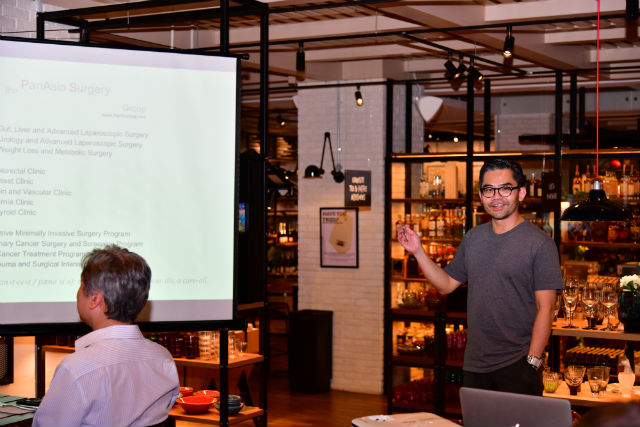
Indeed, I still remember when I just was 12 years old, I had surgery for appendicitis and till today, the surgery scar, though faded, is still visible.
Screening Of Digestive Cancers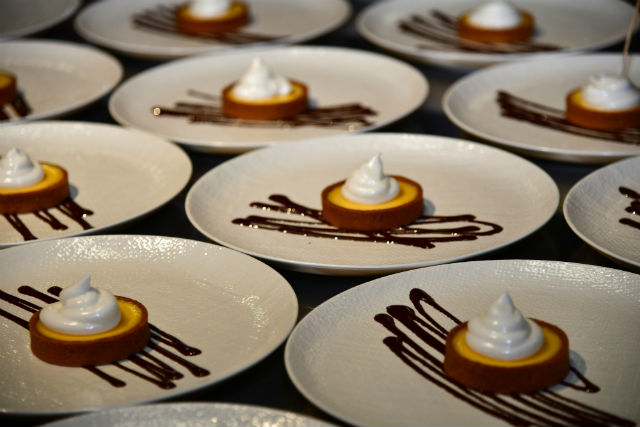
Then we were taken through the latest developments in the Screening and Prevention of Digestive Cancers.
The American Cancer Society, in 2018, recommended that the age to commence screening for colorectal cancer should be lowered to 45 instead of 50, in lieu of the rising incidence of younger people being diagnosed with this disease.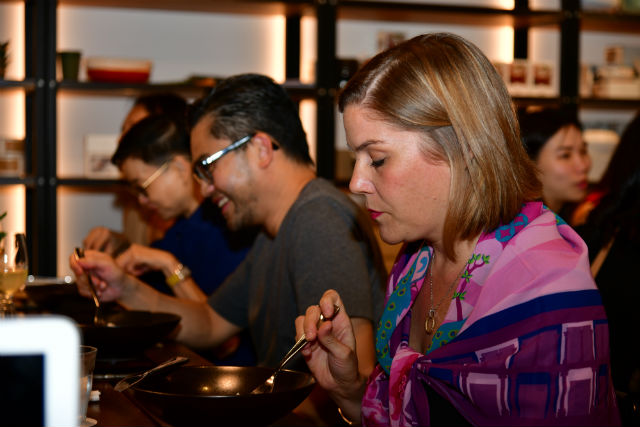
As well, surgeons at the event, hoped to increase public awareness for stomach cancer, which is common amongst Asians, through opportunistic gastroscopy screening, to diagnose and treat them.
Restoring Of Health Via Nutraceuticals
We were then brought through the Restoring of Health through Nutraceuticals.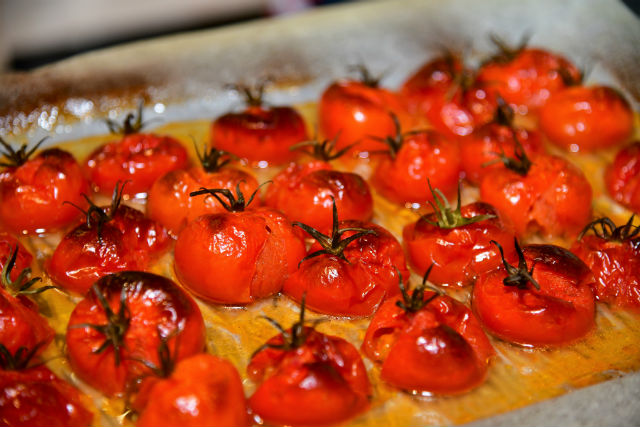
While surgery is needed to cure diseases, the optimising of a person’s recovery following the surgical methods is often neglected.
To explain, Nutraceuticals are typically a broad spectrum of commercially available products in the market and is defined as a part of food or nutrient that is intended to provide medicinal or health benefits, including the prevention and treatment of diseases.
They include functional foods, dietary supplements as well as medical foods.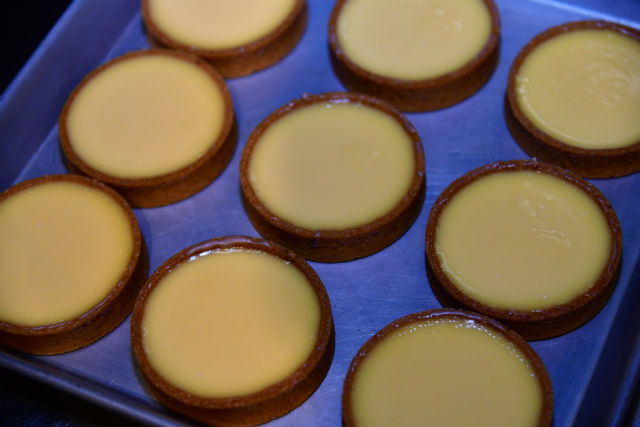
And the surgeons hope to collaborate with industry partners to develop therapeutical meals for post-surgical recovery and super nutrient dietary supplements to enhance long-term wellness in the person.
Doing so, according to the PanAsia Group surgeons, would enhance a person’s natural immunity, reduce oxidative stress and ageing, as well as preventing age-related diseases and possible disabilities.
Weight Loss
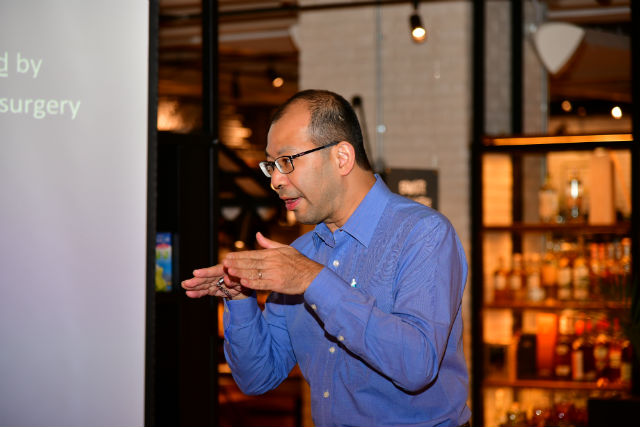 As we age, we need to consume less calories but more micronutrients than when we were younger, and most of us are not getting enough of these nutrients. That is where the therapeutical meals come in useful, to give our bodies the micronutrients that we would need.
As we age, we need to consume less calories but more micronutrients than when we were younger, and most of us are not getting enough of these nutrients. That is where the therapeutical meals come in useful, to give our bodies the micronutrients that we would need.
Breast Cancer
And as for Breast Tumours, the surgeons introduced a new treatment technique called Cryoablation which does not require surgical incisions and tissue removal. 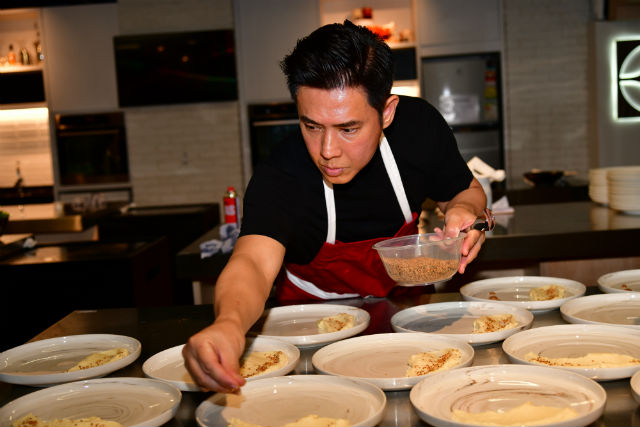
It is a low risk, outpatient process with high patient comfort and proven good outcomes and the procedure is currently in the clinical trials stage.
With the high prevalence of Breast Cancer today, I think that this treatment technique certainly looks promising and definitely beats mastectomy and breast reconstructions, both of which can cause drastic changes to a lady’s image and self-esteem.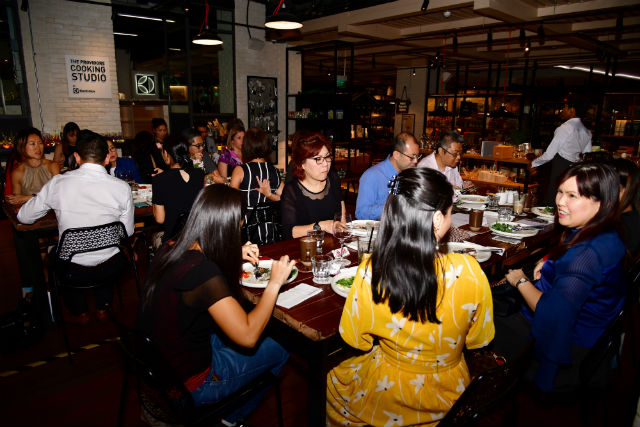
Trends In Urological Cancers
As well, the surgeons brought us through the latest trends in the treatment of Urological Cancers, namely the Kidney, Bladder, Prostate and Testis Cancers.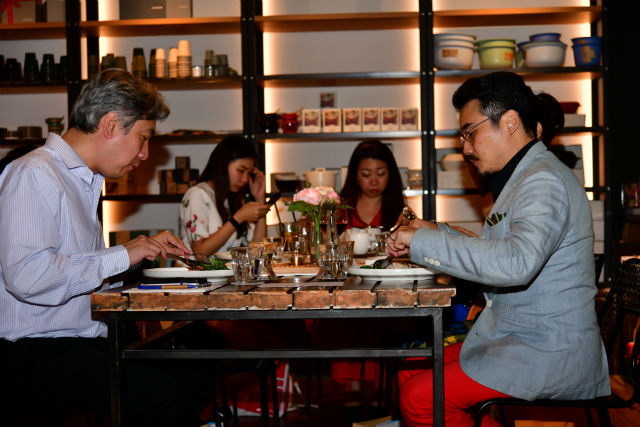
For Kidney Cancer, a revolutionary new treatment called Da Vinci Robotic Surgery has been introduced, and according to the team of PanAsia surgeons, it is deemed to be suitable for anyone at any age, with a small kidney tumour.
Intravestical Therapy was introduced as a way to treat bladder cancer, with the key benefit of this being that it prevents the patient from losing the entire bladder.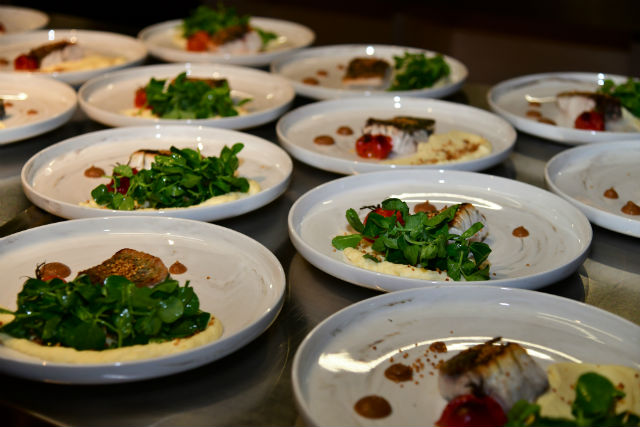
MRI and live ultrasounds are beginning to be used together in the detection of Prostate Cancer to avoid multiple repeated prostate biopsies that tend to be less accurate.
And using good, nerve-sparing prostate cancer surgery, side effects such as a patient’s ability to pass motion, can be minimised when the patient is going under the knife.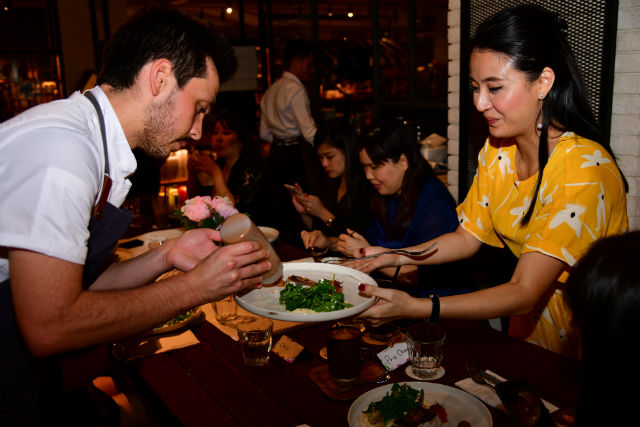
Testis Cancer, the most common type of cancer in 20 – 35 year old men, usually take the form of hard, painless lumps with occasional aches and pains, if there are haemorrhages. So regular self-examination of lumps is recommended.
Zander Ng’s Four Courses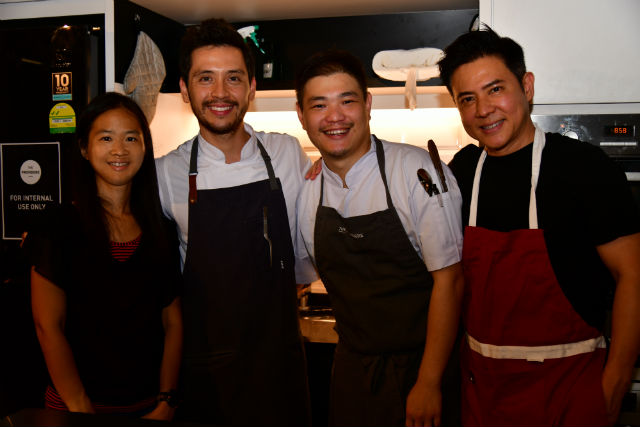
As we were listening to the highly informative and educational session, a four-course Western dinner was being prepared by Zander and his team of chefs. This was served to us over the course of the evening.
And in case you are wondering, the dishes that we had during the dinner, were as follows: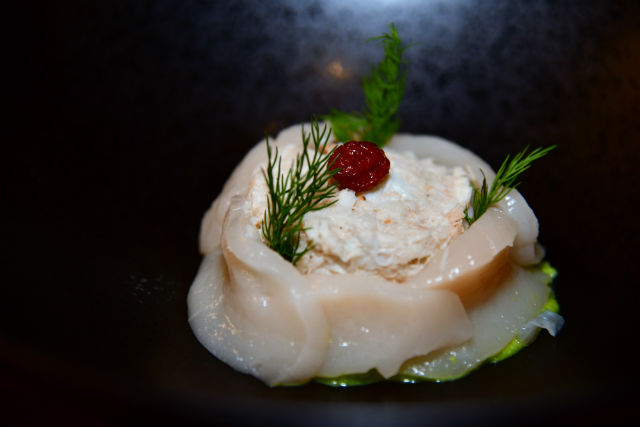
Antipasti – Scallop Carpaccio served with Spanner Crab, Garden Peas, and Ponzu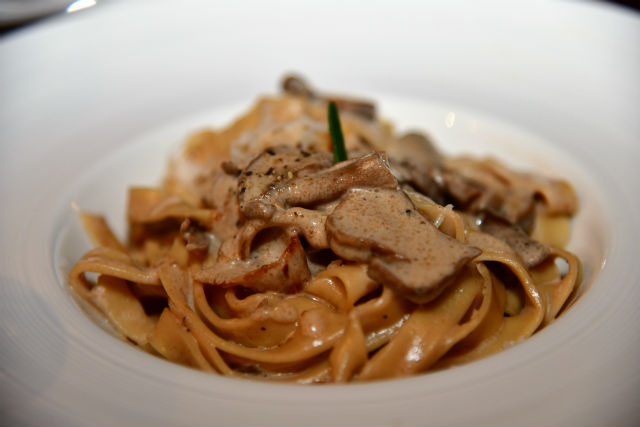
Primi – Fresh Tagliatelle served with Porcini Mushrooms, 30-month Aged Parmigiano-Reggiano, and Hokkaido Milk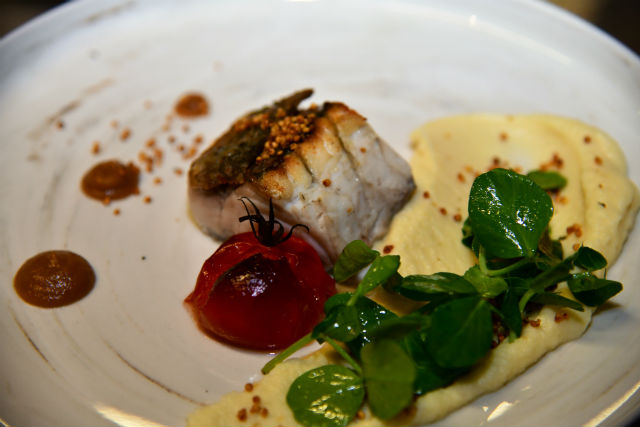
Secondi – Barramundi served with Celeriac, Burnt Onion, and Ancient Grains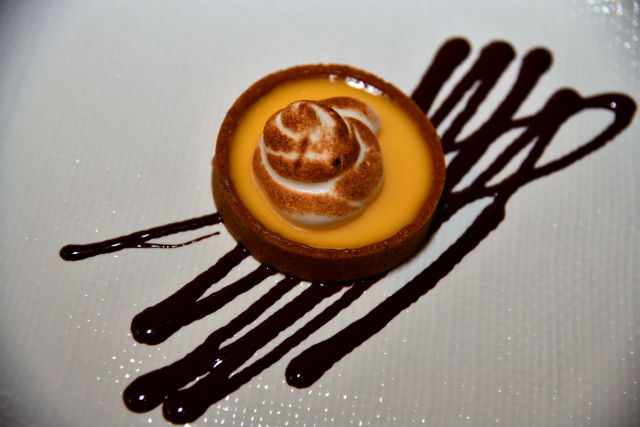
Dolci – Yuzu Pie served with Miso, Young Ginger, Guanaja 70% Dark Chocolate
It was the first time that I had been tasting the cooking of a MasterChef competition winner and, in short, I would say that I was blown away by the meal – all four dishes were really delicious. In fact, I admit that I would be hard-pressed to pick a favourite course.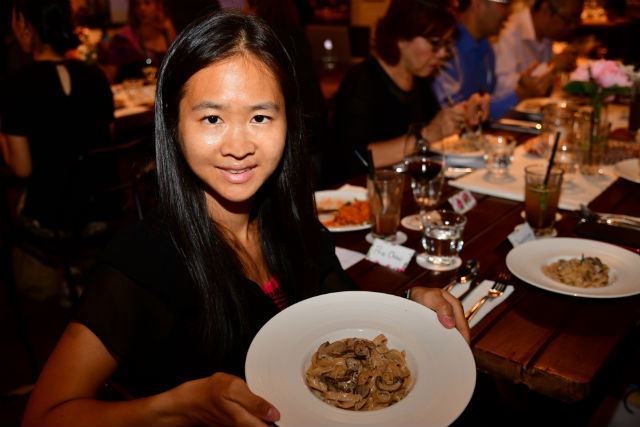
As well, during the session, Zander mentioned that because of the large team of doctors present at the event, he’d made sure that the ingredients that were chosen were fresh, nutritious and full of goodness and that nothing had been prepared using less healthy cooking methods such as deep-frying.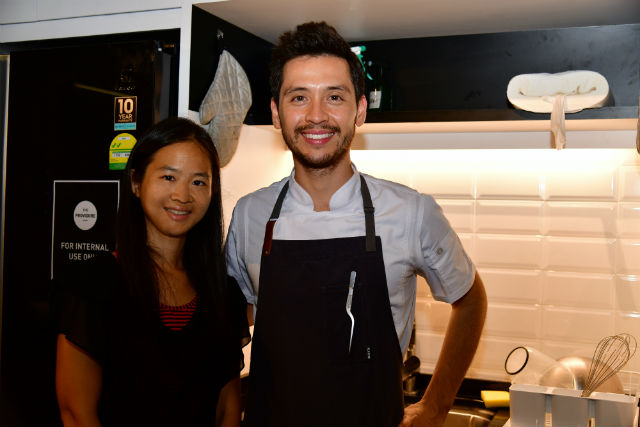
My Conclusions
Overall I would say that the session had been an enlightening and informative one for me, and that I had learnt a lot about surgery and health care.

Leave a Comment